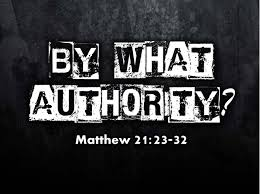We sometimes use the expression “systems of errors” but strictly
speaking, errors are so inconsistent with each other that they cannot be called
a “system”. In the field of philosophy error is called ‘false philosophy’; in
the field of science error may be called ‘untrue’; in the field of morals error
may be called ‘unethical’; in religion error is designated as ‘false doctrine’.
Denominationalism has some truth—that is, there is some truth
taught by all religious bodies. However, there is so much error that the truth
is overshadowed by the error. There are distinctive “false doctrines” that give
body to the teachings of the denominations. Some of the founders of
denominations have been honest enough to condemn denominationalism.
JOHN CUMMING – He was minister of the Scottish National Church in London,
England. He lived about the middle of the nineteenth century. He wrote: “The
first name, pronounced from heaven, was ‘Christian’; and we may depend upon it,
it will be the last; for just in proportion as we grow toward the beautiful
original in character, in the same proportion will those assumed human
names—‘Presbyterians’, ‘Independents’, ‘Baptists’,’ Episcopalians’,
‘Churchmen’, ‘Dissenters’, drop off. Just as Christ is in a Christian’s heart,
all and in all, so, when that inner influence becomes an outer life,
‘Christian’ will be in a Christian’s vocabulary, all and in all, also.” (The
Daily Life”, by John Cumming, page 262).
DR. ADAM CLARKE – He wrote in his “Preface to Acts of the Apostles”: “In
the book of the Acts we see how the church of Christ was formed and settled.
The apostles simply proclaim the truth of GOD relative to the passion, death,
resurrection, and ascension of Christ; and GOD accompanies their testimony with
the demonstration of the Spirit. What was the consequence? Thousands
acknowledge the truth, embrace Christianity, and openly profess it at the most
imminent risk of their lives. The religion of Christ stands in no need either
of human cunning or power. It is the religion of GOD, and is to be propagated
by His power; this the book of the Acts fully shows; and in it we find the true
model later which every Christian church should be builded. As far as any
church can show that it has followed this model, so far it is holy and
apostolic. And when all churches or congregations of people professing
Christianity shall be founded and regulated according to the doctrines and
discipline laid down in the book of Acts of the Apostles, then the aggregate
body may be justly called the holy, apostolic, and Catholic (i.e., universal)
church.’ (Clarke’s Commentary,” Volume V, page 680).
DR. CHARLES H.SPURGEON – A noted Baptist preacher, condemned denominationalism, and
especially the Baptist denomination, in the most severe terms. He said: “I look
forward with pleasure to the day when there will not be a Baptist living. I
hope they will soon be gone. I hope the “Baptist” name will soon perish, but
let Christ’s name last forever.” (Spurgeon Memorial Library,” Volume 1, page
168).
ALBERT BARNES – A Presbyterian commentator, wrote: “The existence of sects, and denominations, and contentions
may be traced to the following causes: 1) The love of power, and they who have
control of the consciences of men and of their religious feelings and opinions
can control them altogether. 2) Showing more respect to religious teachers than
to Christ. 3) The multiplication of tests, and the enlargement of creeds and
confessions of faith. The consequence is that every new doctrine that is
incorporated into a creed gives cause for those to separate who cannot accord
with it. 4) The passions of men–their pride, and ambition, and bigotry, and
unenlightened zeal.
MARTIN LUTHER – The founder of the Lutheran Church said: “I pray you to leave
my name alone, and call not yourselves ‘Lutherans’, but ‘Christians’. Who is
Luther? My doctrine is not mine. I have not been crucified for anyone. St. Paul
would not permit that any should call themselves of Paul, nor of Peter but of
Christ. How, then, does it befit me, a miserable bag of dust and ashes, to give
my name to the children of Christ? Cease, my dear friends, to cling to these
party names and distinctions; away with them all; let us call ourselves only
‘Christians’ after Him from whom our doctrine comes.’ (Life of Luther,” by
Stork, page 289).
JOHN WESLEY – The founder of the Methodist Church, condemned
denominationalism, saying: “Would to God that all party names and unscriptural phrases
and forms which have divided the Christian world were forgot; that we might all
agree to sit down together as humble, loving disciples at the feet of a common
Master, to hear His word, to imbibe His Spirit, and to transcribe His life into
our own.’ (Hardeman’s Tabernacle Sermons,’ Volume V, page 60).
Dear reader consider, “WERE THESE MEN WRONG IN THEIR STATEMENTS?”
If not, why are their words not heeded? The unity they desired was exactly what
our Lord earnestly prayed for. “And
I am no more in the world, and these are in the world, and I come to thee. Holy
Father, keep them in thy name which thou hast given me, that they may be
one, even as we are. Neither for these only do I pray, but for them
also that believe on me through their word; that they may all be one;
even as thou, Father, art in me, and I in thee, that they also may be
in us: that the world may believe that thou didst send me.” (John 17:11, 20-21).




